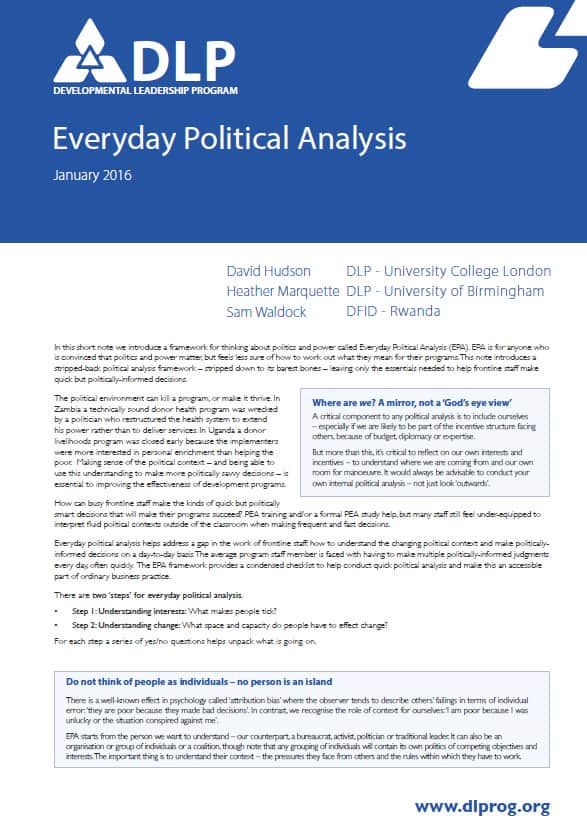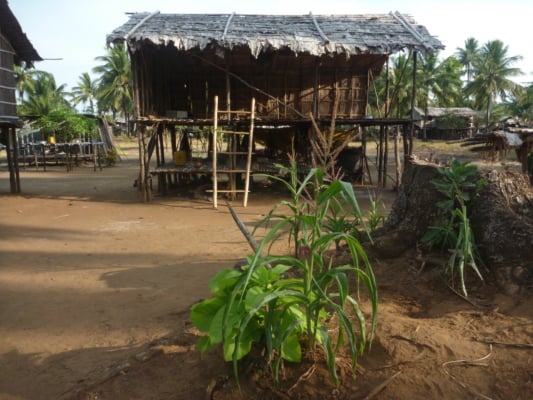This short note introduces a stripped-back political analysis framework designed to help frontline development practitioners make quick but politically-informed decisions. It aims to complement more in-depth political analysis by helping programming staff to develop the ‘craft’ of political thinking in a way that fits their everyday working practices.
Everyday Political Analysis involves two steps. For each step five questions, accompanied by prompts, aim to help staff to conduct quick political analysis. These questions are briefly outlined below:
1. Understanding interests: What makes people tick?
i. Is what they want clear?
ii. Are they acting in line with their core beliefs?
iii. Do you understand the constraints they face?
iv. Is it clear who and what the key influences on them are?
v. Is their behaviour being shaped by social norms about what is appropriate?
2. Understanding change: What space and capacity do people have to effect change?
i. Are they the key decision maker?
ii. Do they have potential coalition partners?
iii. Are their key decision points clear?
iv. Is their framing of the issue likely to be successful?
v. Are they playing on more than one chessboard?The EPA framework can be used at any stage of the aid management cycle, and can help users to respond rapidly to unexpected change.
We are keen to hear back from people on their experience of using EPA to help us adapt the framework. Was it useful (or not)? Do people tend to use just one or both steps? Are there missing statements or prompts that would improve the analysis? Please email us at info [at] dlprog.org.











